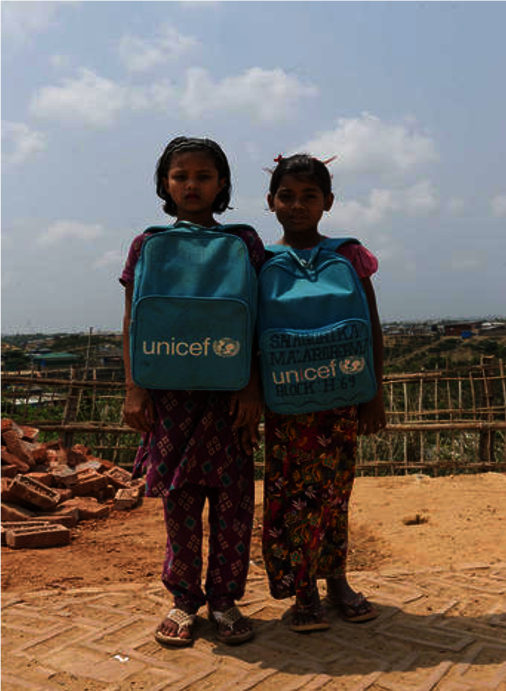By Whitney Simon | Manager, Global Cause Partnerships
Dear Friend,
In August 2017, when hundreds of thousands of refugees from Myanmar fled to Bangladesh, the world took note. Of particular concern was the fact that out of the 730,000 Rohingya refugees flooding Bangladesh’s beaches and paddy fields, almost 60 percent of them were children. Today, around 910,000 Rohingya have settled in Cox’s Bazar District in southern Bangladesh. Life for these refugees, especially for children, is characterized by uncertainty. Despite having access to some basic services, Rohingya children remain highly dependent on short term aid and live in precarious conditions, particularly in the cramped camps where living conditions are difficult and dangerous.
In 2019, UNICEF noted an increase in child exploitation within the Rohingya refugee camps. In Bangladesh, Rohingya children are not registered at birth. Consequently, with a lack of legal identity these children are unable to secure refugee status and often become appealing targets to criminal groups for labor and sexual exploitation. Girls in particular are at risk of commercial sexual exploitation and gender-based violence.
UNICEF is also concerned by the number of children who are unable to obtain an education. Although UNICEF has been able to provide access to learning for nearly 213,000 Rohingya children ages 4 to 14 through 2,167 learning centers, there are still 25,000 children who are not attending any learning program. Furthermore, 97 percent of children aged 15 to 18 years old are not attending any type of education facility. UNICEF fears that these children run the risk of becoming a “lost generation” if there are unable to continue to receive an education while displaced.
Thanks to your support, UNICEF is working closely with partners to provide essential water, sanitation and hygiene (WASH), health, nutrition, education and child protection services to the Rohingya refugees.
In 2019 UNICEF and partners achieved the following results for Rohingya refugees:
In 2020 UNICEF desires to continue to scale up its response amongst the Rohingya refugee population. In particular, the quality of education requires further improvement and while access to water has improved, there are still persistent issues with quality. Your continued support will allow us to continue to maintain the livelihoods of Rohingya children in the coming year. Thank you for your partnership and for all you do to create a better world for children.
Sincerely,
Whitney Simon
Project reports on GlobalGiving are posted directly to globalgiving.org by Project Leaders as they are completed, generally every 3-4 months. To protect the integrity of these documents, GlobalGiving does not alter them; therefore you may find some language or formatting issues.
If you donate to this project or have donated to this project, you can receive an email when this project posts a report. You can also subscribe for reports without donating.
